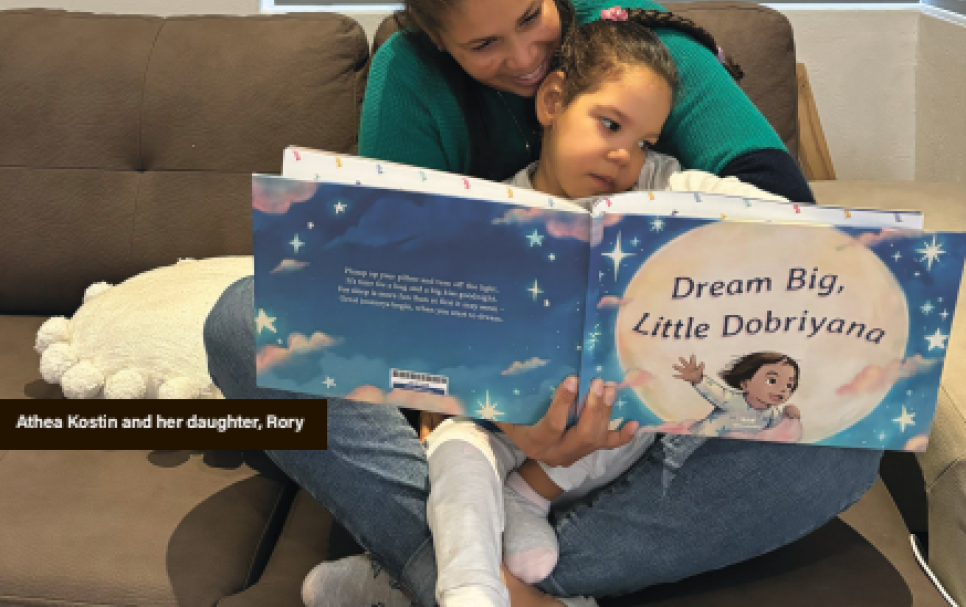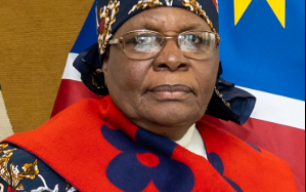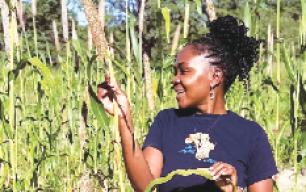Decaying health sector costly, fatal

• By Patience Makwele
Alleged systematic failures within Namibia’s medical sector are not only a health hazard, but fast becoming a costly exercise as most patients are misdiagnosed by medical practitioners, or worst, denied the privilege to undergo several medical tests. This issue often results in victims facing life threatening complications which leave families mentally, physically, financially and psychologically drained. One such story is that of Swakopmund resident, Anthea Kostin’s three years old daughter Dobriyana (Rory) who was misdiagnosed by paediatricians on three different occasions in Walvis Bay.
A misdiagnosis’ which could have been prevented – yet changed her young life forever. When it dawned on medical staff that Rory has contracted bacterial meningitis it was too late, as her body was now riddled with seizures. Rory’s medical bill has since ran into excess of N$600,000.
Her mother still vividly recalls the evening as one where Rory began crying uncontrollably, unfortunately little did she know she was hearing the first warning signs of a life-threatening illness. “It was not the usual cry. It was desperate. From somewhere deep. I knew something was terribly wrong,” Kostin recalls. But despite multiple visits to the pediatrician in Walvis Bay, Kostin was sent home every time. “They told me it was colic. Then a stomach bug.
Then they said I was just an anxious mother. No tests were run, nor bloodwork done and no sense of urgency was attached to the matter. At the time, Rory had just received her meningitis vaccine one week earlier,” she added. “She was a calm, healthy baby before that, but her cries only grew more intense, and she had developed a mild fever.” Despite this, the paediatrician told her not to worry unless it reached 38 degrees Celsius and was told to giver Panado. Unfortunately for Kostin, this was just the beginning of a life changing terror. The next day, Rory’s fever persisted and she developed an upset stomach.
Desperate and unheard, she rushed her to the emergency room at a local hospital. “The doctor on call did not even use his stethoscope,” she said. “I explained the symptoms and he said it is a stomach bug, gave us meds and sent us home.” That night, at two o’clock in the morning, the persistent cries would not stop. Kostin and her husband rushed to another hospital in Swakopmund. “At this point I had lost all faith in the Walvis Bay hospital. She was admitted and tested.
The next morning when the paediatrician came in, he did a lumbar puncture and confirmed bacterial meningitis. By then she had had her first seizure.” Professedly, the news was a devastating blow. “Meningitis can move fast, and in Rory’s case, it did. My daughter was misdiagnosed three times, as colic, stomach bug and parental anxiety. Nobody did basic blood work before. When they finally tested her [Swakopmund], it was too late. She seized within hours of being admitted and was rushed to intensive care unit,” the mother painfully recalled.
“The paediatrician in Swakopmund saved her life, they acted fast and followed the correct protocols because we were informed that she would not have made it to the morning, had we not gone in.” However, according to her, the damage was already done. This, she said, can be attributed to the little to no awareness raised about bacterial meningitis in Namibia, which results in many people having little or no clue about the disease.
Kostin described the damage it did to her daughter by sharing that the infection ravaged Rory’s brain, stealing much of what she had barely begun to experience. “While we were being dismissed, the infection spread to Rory’s brain. It caused a severe brain injury. She lost her hearing and had seizures, each seizure caused a little more damage. We were told she would likely be blind and fully paralyzed too. She was just three months old.”
Today, many babies are given vaccines without proper education on what signs to watch out for, this according to Koslin, is something she was not clued-up on. “I wish I had known. If a child is getting a vaccine, especially for something as serious as meningitis, parents should be told what symptoms to watch for, why the vaccine matters, and what the risks are if the infection still happens,” Kostin said, her voice thick with emotion.
She revealed that she gave birth to three children, and not once was she educated on what a post-vaccine infection might look like. What’s worse, Kostin added, is that her concerns were not just overlooked, they were dismissed. “If I had known that a low-grade fever and high-pitched crying could mean meningitis, I would have pushed harder. But the pediatrician did not take me seriously.”
SYSTEM FAILED HER
Rory is now three years old. She still cannot sit on her own and is only now developing head control. According to the mother, she was on daily seizure medication “that left her lifeless.” Said Kostin; “She has lost her hearing, but she has received bilateral cochlear implants.”
According to Kostin, the family pursued one round of stem cell therapy abroad, a difficult and expensive journey but one that brought progress, as ‘her vision has since improved’ and the support she needs is ongoing and far beyond what Namibia’s health system currently offers. “Rory needs pediatric neuro-developmental physiotherapy, occupational therapy, and speech therapy. But we do not have certified neurodevelopmental therapists in Namibia.” From misdiagnosis to financial fallout, Kostin says the healthcare system has failed children like Rory. “Her condition was preventable, yet after her diagnosis, we were left to carry the financial burden too.”
“Her cochlear implants cost N$600,000. Medical aid paid roughly N$120,000. They covered N$3,000 for a standing frame that costs more than N$20,000. Families like ours are forced to fundraise or go without.” For Kostin, these failures are not just medical but systemic. “No child should have to leave their country for basic, life-changing care.” Kostin did not stop at survival.
Today, she is the founder of the Rory Kostin Foundation, supporting children with neurological challenges and the co-founder of Beyond Barriers Pediatric, an initiative bringing intensive neurodevelopmental therapy to Namibia. She is also the author of The Mysterious Book of Magic, part of the “Read with Rory” children’s book series that centers neurodiverse children and uplifts voices rarely heard in stories. “It started with affirmations for Rory,” she said. “But now, it is for every child who’s ever felt unseen.” Her message to parents everywhere; “Trust your gut.
If a doctor does not listen, find another one. Meningitis can progress within hours. Know the signs: highpitched crying, vomiting and has a low grade fever, light sensitivity, a bulging soft spot. Push for answers. You know your child best and your child’s life depends on it.”
EARLY TREATMENT
Speaking to Confidente this week, Dr Gerald Morkel, a Namibian paediatrician, stressed that early intervention is crucial in bacterial meningitis cases. “Bacterial meningitis can have a rapid progression, often within 24 hours from the start of symptoms. As the infection spreads within the meninges and surrounding brain tissue, progressive neurological damage can occur. These include deafness, obstructive hydrocephalus, motor impairment, seizures and mental retardation.
Therefore, early intervention will limit the progression of the infection and subsequently limit the neurological complications,” Morkel explained. He highlighted that vaccination remains an important line of defense, but not an absolute shield. “The vaccinations given according to the national immunization schedule prevents most forms of bacterial meningitis. Unfortunately, as in all vaccinations, this is not a 100 percent guarantee.
Some other bacteria that can cause meningitis are not prevented by these vaccinations, but additional vaccinations are available in the private sector,” he said. Morkel maintained that a delay in accessing medical help in such cases, or worse not having any access to treatment can deepen the crisis. He further called on health care providers dealing with children and parents to be extra vigilant and on the lookout for symptoms of such ailments at all times. “Continuous health education and awareness campaigns are important to ensure the above,” Morkel said
- 3 views










Comments